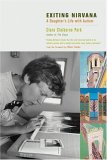Summary | Excerpt | Reviews | Readalikes | Genres & Themes | Author Bio

A Daughter's Life with Autism
by Clara Claiborne Park
It has not been about a miraculous recovery, though selective narration could give that illusion. It has not been about happiness either; in very real ways it has been about its opposite. It has been about growth, and there is no growth in Nirvana. The world we share, the only world we had to offer that wordless baby, is our common world of risk, frustration, loss, of unfulfilled desire as well as of activity and love. We could not leave Jessy to her empty serenity. We would not, as was often recommended in those days, institutionalize her "for the sake of the other children," to spend her days somewhere in a back ward, rocking. We would keep her with us, entice, intrude, enter where we were not wanted or needed.
It was like assaulting a walled city. I called my book about it The Siege, choosing the title two years before I'd ever heard of an empty fortress. The metaphor is that strong. Four years, five years, six years --we did get into the walled city. But of course when she began to look at us, to recognize us, to need us --even, in her way, to love us --this was no goal achieved but only a beginning. The siege metaphor became transmuted into a more ordinary one. Siege into journey.
When Jessy was small there were no real explanations for the condition Leo Kanner, the noted child psychiatrist, had identified in 1943 and called Early Infantile Autism. He had observed and described those eerily detached children; he had thought that such a profound inability to relate to others was probably "innate."
But he had also speculated in a different direction; the phrase "refrigerator parents" was also his. Twenty-five years later, before the newly formed National Society for Autistic Children (now Autism Society of America), he would repudiate this explanation in words none of us who heard him would ever forget: "Herewith I especially acquit you people as parents." But though he called The Empty Fortress "the empty book," the ghost of parental responsibility was not so easily laid to rest. Nor was there as yet research to offer convincing support for alternative hypotheses.
In the more than thirty years since then, evidence has accumulated for more merciful --and realistic --explanations. Suppose an impairment in what we now call information processing. A new baby is flooded with information --what William James called a "buzzing, blooming confusion" of light, shadow, color, sound, constantly changing. And if this baby's brain is not ready to do what other babies do so naturally that we don't even think about it, to make sense of that confusion of sense impressions, to resolve it into what it can recognize as faces, voices, which experience can render familiar and welcome? What then? Suppose she cannot do what other babies do instinctively, understand the changing expressions on those faces, the tones of those voices. Might she not prefer the security of a world she could make sense of, a world that didn't change, or changed predictably --a world not of faces, not of voices, certainly not of words, but of spots on the floor and snaking chains? Of clear, unchanging, identifiable shapes and colors? And when that secure order was disrupted, might she not be desolate?
Supplement this with another conceptualization. When the anthropologist Clifford Geertz summarizes "the critical features of human thinking," he does not jump forward to what we might be expecting: sequencing of events, perception of cause and effect, induction and deduction. What he lists is far more fundamental: "joint attention with others to objects and actions, attribution of beliefs, desires, and emotions to others, grasping the general significance of situations." Shall we call this, with the British specialist Uta Frith, a "theory of mind"? It seems too grand a phrase to describe what little tiny average babies, as soon as they are born, get busy developing. Yet these are the skills, this is the natural human knowledge without which the social world, that interwoven tissue of meanings into which every baby is plunged, is unintelligible.
Copyright © 2001 by Clara Claiborne Park




Beliefs are what divide people. Doubt unites them
Click Here to find out who said this, as well as discovering other famous literary quotes!
Your guide toexceptional books
BookBrowse seeks out and recommends the best in contemporary fiction and nonfiction—books that not only engage and entertain but also deepen our understanding of ourselves and the world around us.